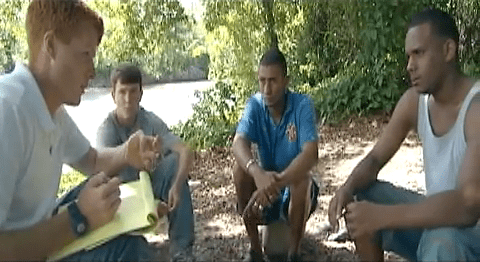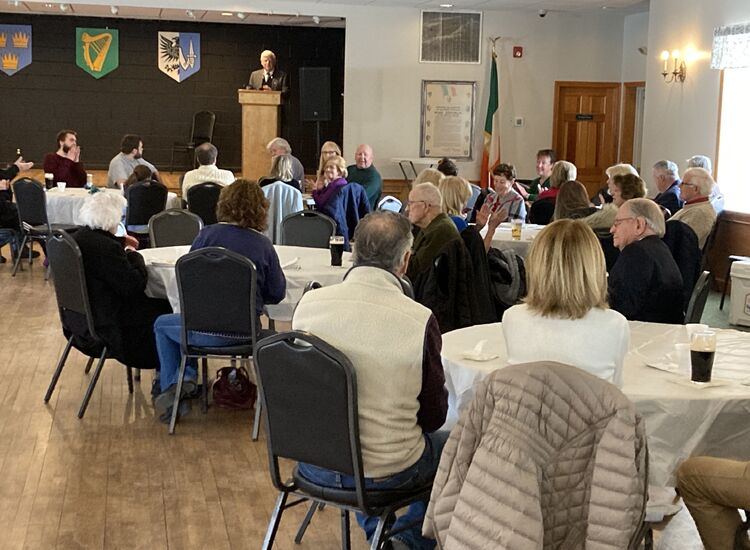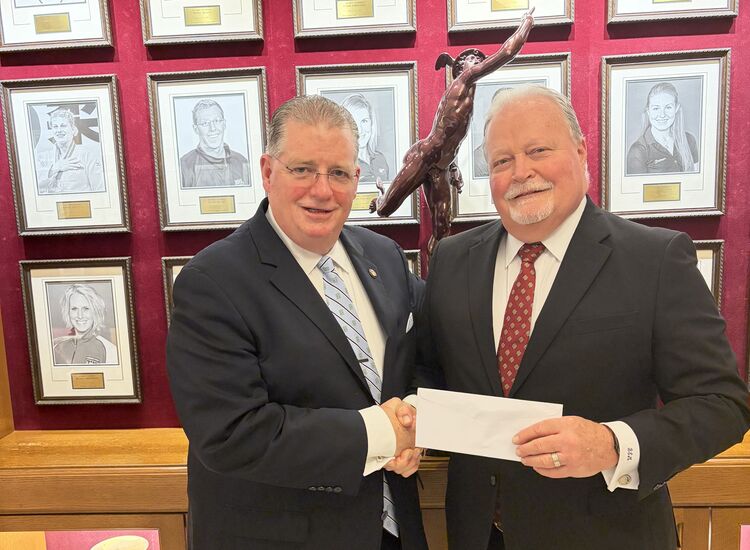Governor Nelson Rockefeller preached Sunday sermons at four Black churches in Brooklyn on Oct. 23, 1960. Historian Taylor Branch said the governor “managed to endorse the Republican ticket without mentioning Richard Nixon by name. Leaving the hard partisan pitch to his pulpit companion, [baseball’s] Jackie Robinson, the governor gave his ‘fellow Baptists’ a talk on the love verses of I Corinthians. ‘We’ve got to make love a reality in our own country,’ he said. ‘When the great spiritual leader, the Rev. Dr. Martin Luther King, finds himself in jail today because he had the courage to love, we have a long way to go in America.’”
In his 1988 history “Parting the Waters: America in the King Years 1954-1963,” Branch continues, “One of the hosts was [MLK’s father] Daddy King’s old friend Sandy Ray, who told his congregation that he would be sticking with the Republicans again in the election, although he was not happy with the ticket. ‘To be frank,’ said Ray, ‘most of us wanted the Governor to be the nominee.’”
Indeed, Governor Rockefeller of New York was the most popular potential Republican candidate that year in the Black community, while the least popular Democrat was Massachusetts Senator John F. Kennedy, the party’s ultimate nominee. But things were to change radically between King’s jailing on Oct. 19 in Atlanta and Election Day, Nov. 8.
A July 26 New York Times article profiled Joe Kennedy III, the most recent member of the family to serve as an elected official, and his new focus on his Groundwork Project, which the paper said is a “a nonprofit that seeks to develop a network of grass roots resistance in four deep-red states — Mississippi, Alabama, Oklahoma and West Virginia.”
Kennedy, a congressman from 2013 through 2021, told the Times that he had never read a book about his grandfather, Senator Robert Kennedy, who was assassinated when running for the presidency in 1968, but that, as the article described it, “since from infancy he marinated in the oral history of family lore.”
Kennedy is rightly proud of the contributions made by family members such as his grandfather and his grandfather’s brothers, President John F. Kennedy and Ted Kennedy, who served in the U.S. Senate for 47 years.
In one important sense, though, the story begins with those last weeks of the 1960 Presidential campaign, which helped make the legend of two politicians, but also featured lesser-known individuals. Those in the latter category were involved in subsequent years in forming the U.S. Peace Corps, which Joe Kennedy served with from 2004 to 2006 in the Puerto Plato province of the Dominican Republic.
Sixty-five years ago, MLK was jailed with students he’d joined in an Atlanta sit-in protest. The students were released gradually after a period of days, but on Oct. 25 Judge Oscar Mitchell sentenced King, the head of the Southern Christian Leadership Conference, to four months hard labor on a chain gang. The Black community was distressed, believing that he would be placed in a situation where he could be knifed by a disturbed person (he’d already survived one such attack in 1958) or targeted for assassination by an opponent or opponents of his views. His wife Coretta, then six months pregnant, was distraught.
“Corrie, dear, you have to be strong. I’ve never seen you like this. You have to be strong for me,” King told her in his jail cell. It was almost a full five years since his ministry had begun, when he’d been tapped to lead the Montgomery Bus Boycott.
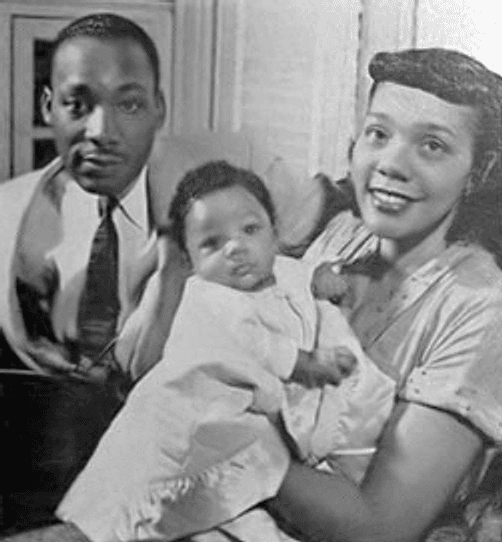
Martin Luther King with his wife Coretta Scott King and their daughter Yolanda Denise in 1956.
Harris Wofford, an aide to JFK, was among those frantically working the phones in King’s cause. He’d been born to a wealthy white Southern family in Manhattan, and became a corporate lawyer and law professor. In his work for civil rights, he’d befriend MLK. Wofford got through to a mentor, Congressman Chester Bowles of Connecticut, who was dining with Adlai Stevenson, on whose campaign to become the Democratic standard-bearer for a third consecutive presidential election the lawyer had worked. Bowles called Coretta King to offer his support, but the future ambassador to the U.N. refused to take the phone even to say hello, which Wofford put down to “his personal discomfort in the presence of Negroes. This trait, which Wofford had observed firsthand, was one of the factors that had moved him to switch from Stevenson to Kennedy early in the election year.”
Wofford came up with an idea with Louis Martin, a leading Black editor, journalist and businessman who was also attached to the Kennedy campaign, and went to it with Sargent Shriver, the candidate’s brother-in-law and their immediate boss. “If only the Senator [Kennedy] would call Mrs. King and wish her well,” Wofford argued, “it would reverberate throughout the Negro community in the United States.”
Shriver agreed to ask the candidate, who at that moment was huddled with his kitchen cabinet on a campaign stop in Chicago. When JFK said he wasn’t feeling well, and retired to his room, Shriver followed him. There the brother-in-law outlined the idea, stressing the “lousy treatment” King had gotten in jail and his wife’s emotional breakdown. “I think you ought to give her a call, Jack.”
As Branch records it, “Kennedy sat up wearily on the bed. ‘What the hell,’ he said. “That’s the decent thing to do. Why not? Get her on the phone.’
“After greeting her, Kennedy said, ‘I know this must be very hard for you. I understand that you are expecting a baby, and I just wanted you to know that I was thinking about you and Dr. King. If there is anything I can do, please feel free to call on me.’
“‘I certainly appreciate your concern,’ said Coretta. “I would appreciate anything you could do to help.’”
Robert Kennedy, when he heard about it, subjected Shriver to a tongue-lashing that, wrote Branch, “permanently strained the family relationship between them.”
The future attorney general then summoned Wofford and Martin for more of the same. The latter, however, explained some of the facts of the case: that they got King on an old traffic charge of driving without a license, denied him bail, and took him off in the middle of the night to the state prison, more than 200 miles away from Atlanta. (A recent biographer, Jonathan Eig, writes that when King asked for his handcuffs to be loosened a little, the guards tightened them more.)
“How could they do that? Who’s the judge?” Bobby Kennedy asked. “You can’t deny bail on a misdemeanor.”
The word got out and JFK was asked about it by a reporter. “She is a friend of mine,” he said, although, In fact, he had never met Mrs. King and never would. “I was concerned about the situation.” The exchange led to a two-inch item on Page 22 of the Times the next morning.
King was soon released on a $2,000 bond.
“I had expected to vote against Senator Kennedy because of his religion,” declared MLK’s father, Daddy King, at a celebration. “But now he can be my president, Catholic or whatever he is. It took courage to call my daughter-in-law at a time like this. He has the moral courage to stand up for what he knows is right. I’ve got all my votes and I’ve got a suitcase, and I’m going to take them up there and dump them in his lap.”
“The crowd roared approval,” Branch wrote, “and roared again when [civil rights leader] Ralph Abernathy said it was time to ‘take off your Nixon buttons.’”
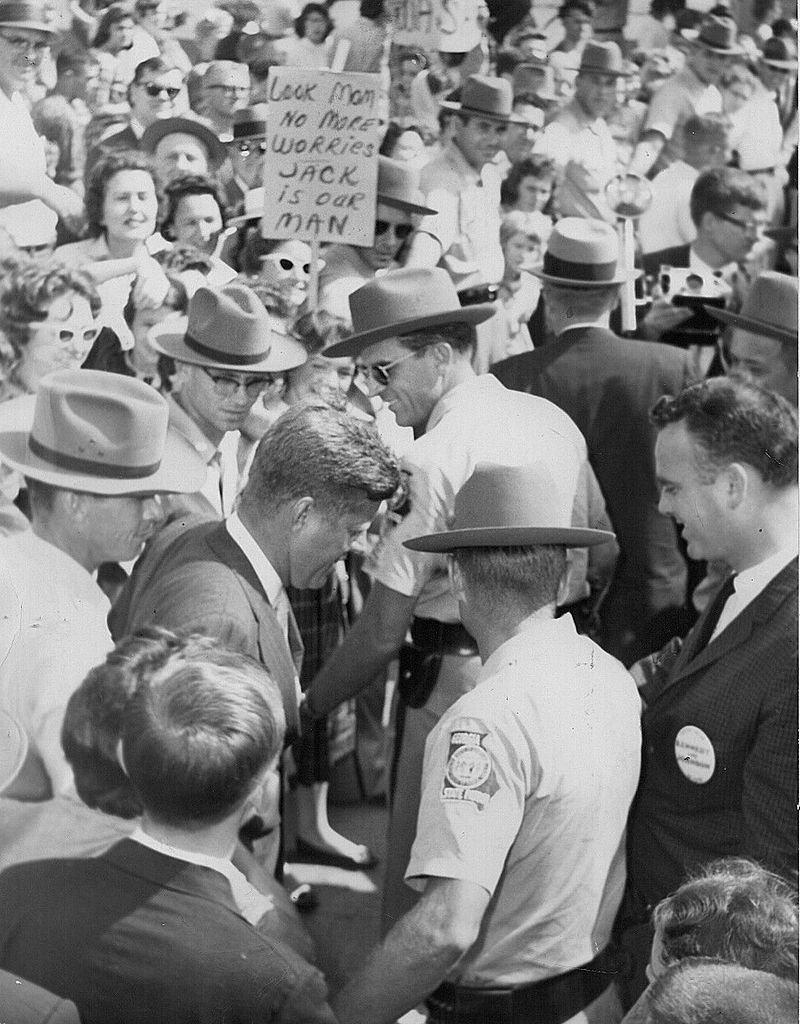
John F. Kennedy campaigning in LaGrange, Georgia, on Oct. 11, 1960.
Wofford and Martin reported to Shriver that a phenomenal “sea change” was taking place within the Black community. The Kennedy civil rights people led by Shriver began working on a pamphlet that would be distributed to Black churches on the last Sunday before Election Day. The planned title was: “‘No Comment’ Nixon Versus a Candidate with Heart, Senator Kennedy.”
It emerged, too, that Bobby Kennedy had called Judge Mitchell while King was still in custody. Wofford was flabbergasted at the change of heart and had mixed emotions overall — delighted as he was, he considered it inappropriate for a campaign manager to call a judge.
Kennedy explained to another aide John Sieganthaler, in Branch’s account, “that he had gotten steamed up on reflecting that the act of a lynch-law judge was ‘screwing up my brother’s campaign and making the country look ridiculous before the world.’
“Wofford stayed on into the night writing a statement that vacillated between pride and apology.”
Daddy King was now all in – and he wanted his son and other senior civil rights leaders to endorse JFK. “You can’t have a man do what Kennedy did and not pay your debt,” he told Harry Belafonte on the phone. The singer agreed but said that giving up their neutrality in an election wasn’t the way to pay that debt.
“You’re too young for these things,” Daddy King countered and abruptly said goodbye.
In the end, the Black vote went 70:30 for Kennedy. It had been 60:40 for President Eisenhower in 1956. Annoyed with the 1960 result because he thought it would be taken as a statement on his presidency, the World War II general blamed it on the “two phone calls” — that by JFK to Coretta King and the second by RFK to Judge Mitchell.
In his ground-breaking 1961 book “The Making of the President 1960,” Theodore White agreed — the calls had no impact on the solidly white Democratic South, but proved the difference in some Northern states. He labeled RFK’s reaching out to the judge in particular a “masterstroke.”
It would take another almost 30 years for Shriver, Wofford and Martin (all of whom were involved with the creation of the U.S. Peace Corps) to get their due in the telling of the story in Taylor Branch’s “Parting the Waters.”

